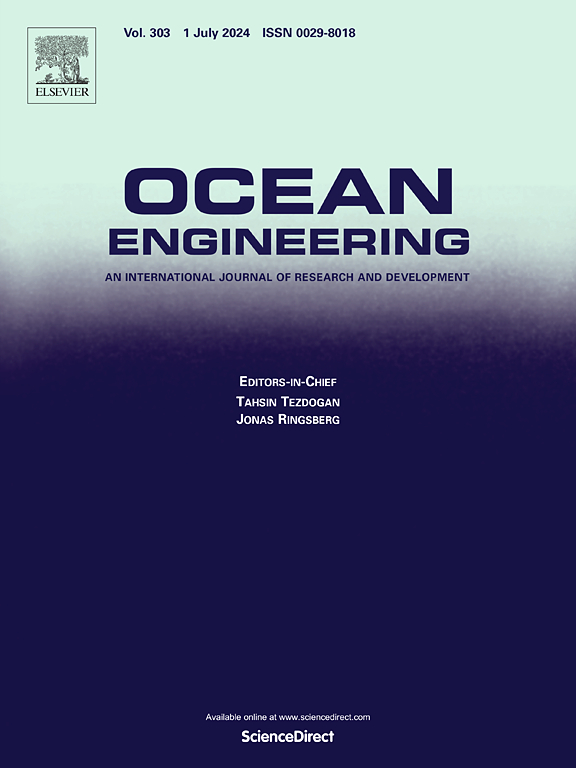Research on speed optimization of fixed route ship with low data dependence
IF 4.6
2区 工程技术
Q1 ENGINEERING, CIVIL
引用次数: 0
Abstract
A low data demand long-term fuel consumption prediction model suitable for variable pitch propeller ships has been established for the first time, and a segmented route speed optimization method has been provided. The event triggered Informer (ET-Informer) algorithm has the ability to predict long-term high-precision sequences and capture key data to reduce data redundancy and improve computational efficiency. The event triggering mechanism allows for data loss at a certain stage, improving the algorithm's fault tolerance and reducing communication requirements. An ordered sample clustering algorithm based on the weighted event-triggered mechanism is introduced, enabling the adjustment of clustering weights according to demand. The threshold for dynamically adjusting similarity measures triggered by events can solve the problem of uneven clustering distribution. This study reduces data dependency and improves the fault tolerance and accuracy of speed optimization through two aspects: fuel consumption model prediction and route segment speed optimization. The proposed algorithm was validated using real-world data from 24 passenger ferry voyages on major international routes in 2021, achieving a fuel consumption prediction accuracy of 98.4 % and a 4.4 % reduction in fuel consumption, while maintaining travel time. The results confirm the effectiveness, robustness, and practical applicability of the fixed-route speed optimization algorithm.
求助全文
约1分钟内获得全文
求助全文
来源期刊

Ocean Engineering
工程技术-工程:大洋
CiteScore
7.30
自引率
34.00%
发文量
2379
审稿时长
8.1 months
期刊介绍:
Ocean Engineering provides a medium for the publication of original research and development work in the field of ocean engineering. Ocean Engineering seeks papers in the following topics.
 求助内容:
求助内容: 应助结果提醒方式:
应助结果提醒方式:


